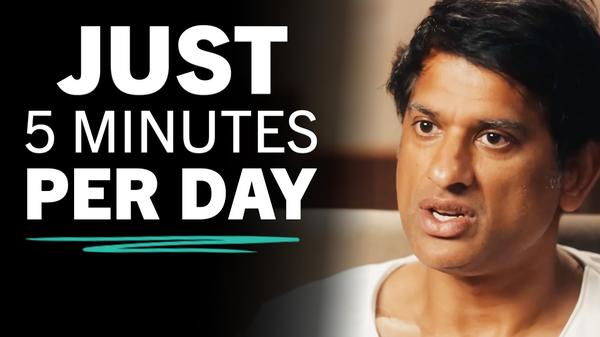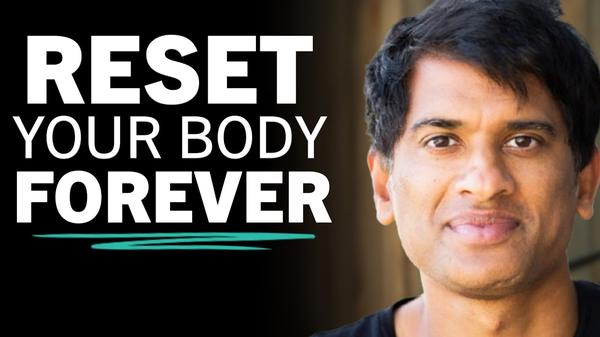
"We Learn it Too Late!" - How Society Makes Us Lost, Addicted & Mentally Ill | Jonathan Haidt
Rangan Chatterjee
May 29, 2024
Mindsip insights from this episode:
Recognize iPhone's evolution from tool to attention master
The iPhone transformed from a useful tool in 2007 to a 'master' that constantly demands attention by 2012 with the introduction of push notifications and mobile-first social media.
Prioritize slow growth for optimal brain development in puberty
Unlike other animals, it is maladaptive for humans to reach puberty quickly, as we are designed for a slow-growth childhood to allow for proper brain development.
Address stress to prevent early puberty in girls
Research suggests that girls who experience stress and trauma in childhood tend to menstruate earlier, which is an evolutionary response to a perceived dangerous world.
Prioritize one-to-one interactions over group texts for child development
Unlike one-to-one texting, large group chats encourage performance rather than the playful, bonding interactions that are crucial for a child's development.
Support Gen Z employees to overcome mental health challenges at work
Employers are concerned because Gen Z employees exhibit more mental health issues and have trouble with eye contact and divided attention, likely due to habits formed in a phone-based childhood.
Address gender-specific harms of technology on youth
The new tech world harms boys and girls differently, with video games and porn exploiting boys' need for agency, while social media exploits girls' need for communion.
Limit smartphone use to reclaim experiences and hobbies
A smartphone is an 'experience blocker' because it displaces all other activities like reading, hobbies, and sleep, even if the user is not on social media.
Leverage religious family structure to support youth mental health
Data indicates that children from religious families have been less affected by the youth mental health crisis, possibly due to the structure and authoritative parenting styles common in these households.
Choose tech-free schools to enhance learning experiences
Many tech executives, including Steve Jobs, sent their own children to zero-technology schools, suggesting they understood the downsides of constant screen exposure for learning.
Send phone-addicted teens to sleepaway camp for a powerful detox
Sending a phone-addicted, anxious teen to a sleepaway camp without devices can be a powerful detox that brings back their happier, pre-phone self within weeks.
More from
Rangan Chatterjee
Neuroscientist: If You’re Feeling THIS, You’ve Lost Touch With Your True Self
Neuroscientist: If You Feel THIS, You're Living the Wrong Life (Unlock The One You're Meant For)
The 5-Minute Morning Habit That Transformed My Health, Happiness & Marriage
If You Struggle to Sleep, Start Doing THIS Every Morning
The Only 3 Rules You Need to End Cravings & Reset Your Body
You also might be interested in
The Hidden Damage That Happens "Behind-The-Scenes" In The Adult Entertainment Industry, With Former Adult Actress Felicity Feline
How to Set & Achieve Goals | Huberman Lab Essentials
The Science of Erotic Altered States | Biohacking Sex
Drain your Brain, Protect it from Alzheimer’s Disease
I Tried At-Home Ultrasound for My Brain














